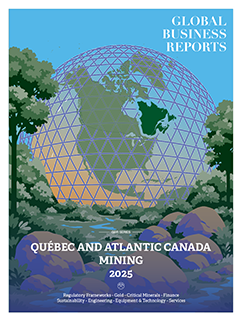
"Materials science continues to be a major driver of innovation in the valve industry."
RELATED PUBLICATION
Ross Waters
CHAIRMAN, CGIS
What is the current challenge in the valve industry?
One of the biggest challenges we see is the decline in valve expertise across the industry. Fewer young professionals are entering this field, and those who do often don't stay long enough to develop the deep application knowledge needed. At CGIS, we’ve learned that no valve is perfect—each one has its limitations—and our role is to understand the application well enough to ensure those limitations aren’t exposed.
Too often, decisions are driven by upfront cost rather than total cost of ownership, which can lead to serious failures. We've seen firsthand how a small savings on paper can lead to huge operational losses. One example—featured in a book I’m currently writing—details how a US$10,000 cost-saving choice led to nearly US$1 million in downtime and damage.
That's why severe service valves matter. They require the right materials, the right design, and, above all, the right application knowledge. Back in 2010, CGIS helped define what severe service means in a standardized way, contributing to the MSS SP-161 standard. It’s a resource the whole industry can now use to better align valve selection with real-world operating conditions.
Can you explain CGIS’s partnership with DHB Valves in Québec?
Success in Québec means more than just offering great products—it requires cultural fluency and a strong local presence. Recognizing this, CGIS partnered with DHB Valves, a respected Québec-based company with over 45 years of experience specializing in pressure relief valves. These valves are essential to many industries, given their legal requirements and frequent servicing needs.
DHB continues to operate independently while benefiting from access to CGIS’s broader severe service valve portfolio. This partnership has strengthened our market position in Québec, particularly in mining and processing sectors where advanced valve solutions are in high demand. We’ve also begun sending team members to support operations on the ground and are actively exploring opportunities to expand into Atlantic Canada, including potential facilities in New Brunswick or Newfoundland.
What recent technological advancements are shaping the future of valves?
Materials science continues to be a major driver of innovation in the valve industry. Advances in coatings and metallurgy are helping extend valve life in highly abrasive and corrosive environments, particularly in severe service applications. While some developments have improved abrasion resistance, challenges like erosion from turbulent flow remain areas of ongoing research and development.
At CGIS, we stay close to evolving trends in soft materials and elastomers, which are showing promise for higher temperature and chemical resistance. New formulations may soon offer better performance across a broader range of demanding applications. On the metallurgy side, exotic alloys and spark-resistant materials are being applied more frequently in autoclaves and oxygen-rich environments, especially in hydrometallurgical processes.
On the smart technology side, we represent Precognize, an Israeli AI platform that integrates with plant systems to detect anomalies and predict equipment failures. It gives early alerts, allowing preemptive maintenance – critical as experienced technicians retire and institutional knowledge disappears.
What are CGIS’s goals for the next year?
Our primary focus this year is on seamless global integration and continued growth. We’re working closely with our recently acquired team in Australia to align operations, culture, and customer support with CGIS’s values and standards. At the same time, we’re expanding our international distributor network for DSS Valves, identifying partners who share our commitment to technical excellence and long-term customer success.
Talent acquisition remains a challenge across the industry, but we’re investing heavily in hiring and training the next generation of valve specialists. We believe a strong, knowledgeable team is essential to delivering the level of support our customers expect.
We’re also advancing our R&D capabilities to demonstrate how severe service valves, like those from DSS, perform under extreme conditions. Field testing and benchmarking remain a priority, as does our materials development program. By continuing to innovate with next-generation coatings and elastomers, we’re ensuring our solutions stay ahead of evolving environmental, safety, and performance demands.











